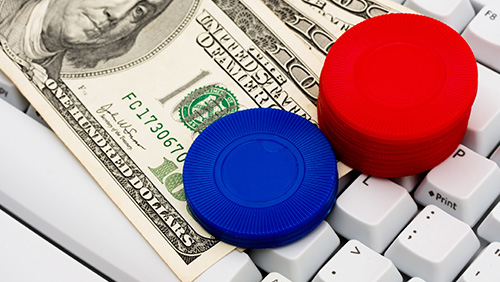Last week, New Jersey’s Division of Gaming Enforcement (DGE) released a revenue report for online gambling operators in the state, and things haven’t improved the way the state—or operators—have expected. Online poker revenue dropped 15% year-on-year, coming in at $1.6 million. According to a PokerFuse analysis, it’s all Pennsylvania’s fault.
New Jersey currently has shared liquidity agreements with Delaware and Nevada. The deal led by the All American Poker Network (AAPN), which currently encompasses only WSOP.com and 888poker. Two other online operators in the state, partypokerNJ and PokerStarsNJ, don’t have any operations in the other states, meaning that they’re not entitled to participate in liquidity sharing.
When the AAPN expanded to give its New Jersey pool access to Nevada and Delaware, it attracted an additional 4 million players. This gave the organization a boost and helped it turn a losing proposition into a winner, albeit only a small one.
Pennsylvania is home to 13 million people. That’s a huge market of potential gamblers and poker players. However, the state has been dragging its feet when it comes to online gambling licenses and their price tags. A single online gambling license costs $4 million. If someone wants to add sports gambling to their portfolio, it will only set them back an additional $10 million. If they want to offer a variety of online gambling options AND sports gambling, it will reportedly cost $20 million—just in the license fees.
